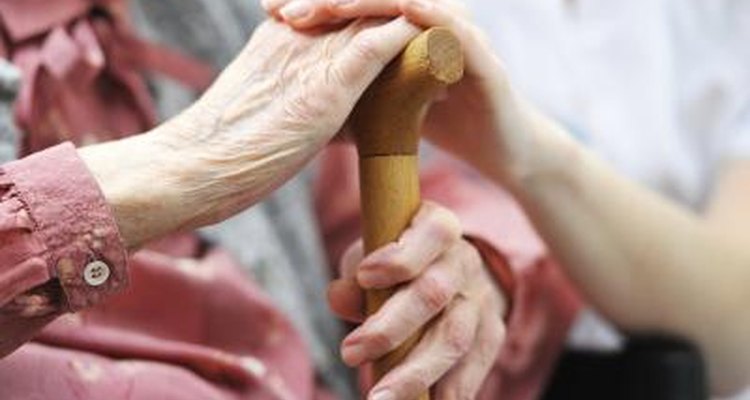
Helping others has a dual benefit. Not only does it provide support to those on the receiving end, it makes you, the helper, feel better too. The benefits of altruism -- along with its sister behaviors empathy and compassion -- are well documented but not necessarily well understood.
Emotional Well-Being
Research led by Dr Suzanne Richards at the University of Exeter Medical School indicates that altruistic behaviors -- those born of an unselfish concern for the welfare of others -- can have a profound effect on a person's emotional well-being. The study shows that helping others improves social interaction, distracts people from their own problems, and improves self-esteem and competence. It even suggests concern for others can allow one to build a "kindness bank" of memories that can be drawn upon well into the future.
Physical Well-Being
While many studies on the positive aspects of altruism deal with emotional well-being, research has also shown that helping others has physical benefits as well. It leads to increased social integration which allows people to lead more active lifestyles. It reduces stress and its associated negative impacts on the body, and it can boost a person's immune system which helps ward off disease. Studies of older people have shown that those who help others live longer, and presumably happier, lives than those who don’t.
Your Brain on Helpfulness
Helping others affects brain chemistry. Scientists have documented the physiological changes that occur in the brain when someone sees the response to their altruistic behavior. A group of economists at the University of Zurich said they have found the sweet spot in the brain associated with altruistic behavior. It appears that variations in the size and activity of a brain region known as the right temporoparietal junction dictates your ability to appreciate the perspectives of others, and it creates the possibility that stimulating it could allow almost anyone to enjoy the many benefits associated with altruistic behavior.
Being Too Helpful Can Hurt
The benefits associated with helping others can have limits. When it's taken too far, it can actually cause harm. Pathological altruism can play a role in a broad variety of disorders. Researchers who make this argument take a zero sum approach to the issue. They argue that there is no such thing as a free lunch; there are always trade-offs. People who may lead seemingly normal, altruistic, public lives can pay the price in their private ones. Pathological altruism has been ascribed to those who put up with an abusive or alcoholic partner. In cases such as these, being overly well-intentioned can delude a person regarding what is truly helpful to others and to themselves.
Related Articles

Aggressive Behavior in Adults

Nutritional Content of Bananas

List of Human Characteristics of ...

Characteristics of a Verbally Abusive ...

How to Live in Harmony with Others

What Are the Rewards of Helping Others?

How to Create Autonomy in a Relationship

Why Do Some People Refuse to Say I Love ...

Elastin Supplements

How Does Stereotyping Affect ...

Signs of a Jaded, Bitter Person

About Narcissistic Men

Types of Extrinsic Motivation

Positive Effects of Dating for Teenagers

Teens Dealing With Jealous Boyfriends

Why Do Some People Like to Cuddle More ...

How to Address Cross Cultural ...

Relationship Love Vs. Family & ...

How Exercise Increases Hair Growth

What Is a Peer Facilitator?
References
Writer Bio
Mike Gonyea served as an account manager and strategic planner at a Detroit advertising agency for 20 years. He has covered automotive finance, state and local government and interfaith issues for publications and websites including “The Detroit News,” American Thinker and A Common Word.
Photo Credits
AlexRaths/iStock/Getty Images